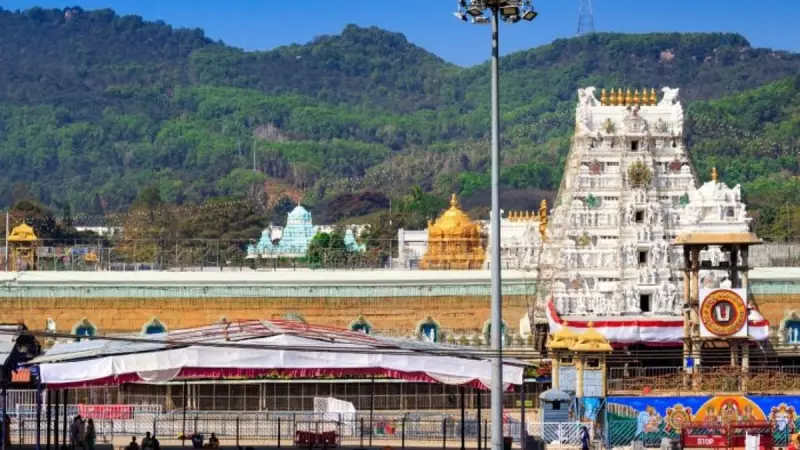
In a shocking revelation that has sent ripples through the religious community, the Tirumala Tirupati Devasthanams (TTD) has been receiving adulterated ghee for temple rituals for more than five years. A Special Investigation Team (SIT) probe has uncovered systematic corruption in the procurement process affecting one of India's most revered religious institutions.
The Systematic Supply of Impure Ghee
The investigation revealed that since 2019, multiple suppliers have been providing substandard ghee to TTD, which manages the famous Tirumala Venkateswara Temple in Andhra Pradesh. The SIT, formed specifically to investigate this matter, found that the adulterated ghee was being used in the preparation of 'prasadam' (religious offerings) and various temple rituals.
According to the probe findings, eight different suppliers were involved in this scandalous operation. The investigation team discovered that these suppliers had been consistently delivering ghee that failed to meet the required purity standards over an extended period. The SIT has gathered substantial evidence including laboratory test results and procurement records that confirm the long-standing nature of this malpractice.
Investigation Timeline and Key Findings
The SIT investigation was initiated following suspicions about the quality of ghee being supplied to the temple. The probe team meticulously examined procurement records dating back to 2019 and conducted random sampling of ghee stocks. Laboratory analysis confirmed the presence of adulterants in the supplied ghee, raising serious concerns about the sanctity of temple rituals.
The investigation is ongoing, with authorities examining the roles of TTD officials who might have been complicit in allowing this practice to continue unchecked for such a prolonged duration. The SIT is particularly focused on understanding how the quality control mechanisms failed to detect the adulteration over multiple years and multiple procurement cycles.
Religious Implications and Public Outcry
The revelation has caused significant distress among devotees who consider the Tirumala temple one of the holiest sites in Hinduism. The use of adulterated ghee in temple rituals and prasadam preparation constitutes a serious violation of religious protocols and has raised questions about the management of religious institutions.
Devotee organizations and religious leaders have expressed outrage over the findings, demanding strict action against all parties involved. The scandal has prompted calls for complete transparency in TTD's procurement processes and the implementation of more robust quality control measures to prevent such occurrences in the future.
TTD authorities have assured devotees that immediate corrective measures are being implemented, including the suspension of contracts with implicated suppliers and the establishment of more rigorous testing protocols for all ritual materials. The temple board has promised complete cooperation with the ongoing investigation and has committed to ensuring that such breaches never occur again.





